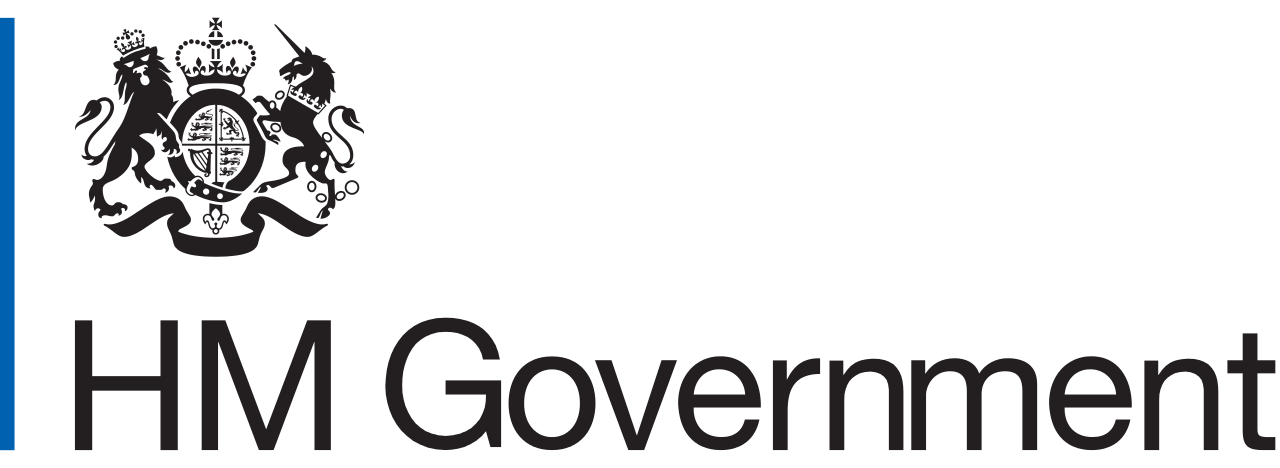EU EXIT TRANSITION
The UK left the EU on 31 January 2020
There is now a transition period until the end of 2020, while the UK and EU negotiate additional arrangements.
The current rules on trade, travel, and business for the UK and EU will continue to apply during the transition period.
For more information and to sign up for Government email alerts about the transition period, visit the Government website.

Latest Updates
EU Exit Webinar Events
- 4th November 2020: A new UK-EU trading landscape: 60-day action plan for EU exit – Please click here to register your place.
- 11th November 2020: UK border changes impacting flow of UK-EU goods from 1st Jan 2021 – Please click here to register your place.
- 18th November 2020: Exporting post EU transition, a practical guide for novice and seasoned exporters – Please click here to register your place.
- 26th November 2020: Importing post EU transition, a practical guide for novice and seasoned importers – Please click here to register your place.
- 2nd December 2020: Understanding international trade documentation post EU transition – Please click here to register your place.
- 9th December 2020: Understanding the new UK Global Tariff and trading under preference – Please click here to register your place.
- 16th December 2020: Navigating Customs formalities and ensuring HMRC compliance – Please click here to register your place.
- 20th January 2021: The importance of Incoterms in international contracts – Please click here to register your place.
- 3rd February 2021: Managing financial risk and getting paid when trading internationally – Please click here to register your place.
- 17th February 2021: Developing overseas markets and managing international partners – Please click here to register your place.
- 3rd March 2021: Effective international supply chain management – Please click here to register your place.
Businesses are being urged to prepare for the end of the transition period on 31 December 2020.
The UK is leaving the EU’s Single Market and Customs Union at the end of the year and there are some definite actions businesses need to take now. These actions are required whether we end up with Australian or Canadian-style trading arrangements.
- If you sell goods to the EU you must prepare for new customs procedures. Visit GOV.UK to check duties and customs procedures for exporting your goods worldwide from 1 January 2021.
- If you travel to the EU for work purposes you will need to check if you need a visa or work permit and apply if necessary.
- If you employ overseas nationals you will need to prepare your business for the implementation of the new immigration system. From 1 January 2021, if you want to hire anyone from outside the UK, including from the EU, you must be a Home Office licenced sponsor.
- If you are a UK business or organisation that receives personal data from contacts in the EEA, you may need to take extra steps to ensure that the data can continue to flow legally at the end of the transition period.
- If you provide services in the EU, you must ensure that your qualifications are now recognised by EU regulations to be able to practice or service clients in the EU.
Businesses can get a personalised summary of the actions they need to take by using the simple tool on gov.uk/transition.
Download a preparation checklist
This helpful checklist outlines the key actions to take to ensure your business is ready for EU Transition.
The transition period will end on 31 December this year and the UK will leave the single market and customs union. Businesses should take action now to start preparing for new trading rules which will be in effect from January 2021. Here’s what you need to know if your business imports goods from overseas.
What is the UK Global Tariff (UKGT)?
The UKGT is the UK’s independent ‘Most Favoured Nation’ tariff. This is a schedule of taxes to be paid on goods imported into the UK from January 2021. The UKGT will replace the EU’s Common External Tariff.
The UKGT will not apply to goods imported from a country that the UK has a trade deal with, a country that is part of the Generalised Scheme of Preferences or where an exception applies.
What should I do next?
1. Learn more about the UK Global Tariff
2. Plan ahead by looking up the tariffs you will need to pay using the tariff look up tool.
3. If you import goods from the EU, learn more about the import process and border controls with the EU from January 2021.
4. Visit GOV.UK/transition for more information about what you need to do to prepare for the changes coming into effect from January 2021.
VIDEOS : Help and support if you export to the EU or import from the EU
New videos have been produced to explain what you need to do if you export to the EU or import from the EU.
Food labelling changes
Food and drink producers, manufacturers, retailers and suppliers must change the way they label products from 1 January 2021.
Existing UK trade agreements with non-EU countries
Find out about the trade agreements the UK has already signed and our our discussions with countries the EU has a trade agreement with.
GB-EU Border Operating Model published
The Government has published an updated Border Operating Model, which provides further detail on how the GB-EU border will work and the actions that traders, hauliers and passengers need to take.
Using personal data in your business from 1 January 2021
From 1 January, your organisation may need to have Standard Contractual Clauses (SCCs) in place with EU counterparts in order to legally receive personal data from the EU. This can include any information that can identify a living person (names, addresses, delivery details etc).
Sign up for trader support service
If you move goods between Great Britain and Northern Ireland, the Trader Support Service will guide you through any changes due to the implementation of the Northern Ireland Protocol. It can help if you are moving goods yourself, act on behalf of someone else or send parcels between Great Britain and Northern Ireland, or bring parcels into Northern Ireland from outside the UK.
Placing manufactured goods on the EU and GB market from 1 January 2021
· EU market : New guidance on what you need to do to comply with regulations on manufactured goods you place on the EU market from 1 January 2021 has been published
· GB market : New guidance on what you need to do to comply with regulations on manufactured goods you place on the GB market from 1 January 2021 has been published
Using the UKCA mark from 1 January 2021
New guidance explains how to use the UKCA (UK Conformity Assessed) marking. The UKCA marking is a new UK product marking that will be used for goods being place on the market in Great Britain. It covers most goods which previously required the CE marking. The UKCA marking can be used from 1 January 2021. However, to allow businesses time to adjust to the new requirements, you will still be able to use the CE marking until January 2022 in most cases.
The transition period will end on 31 December this year and the UK will leave the single market and customs union. Businesses should take action now to start preparing for new trading rules which will be in effect from January 2021. Here’s what you need to know if your business imports goods from overseas.
What is the UK Global Tariff (UKGT)?
The UKGT is the UK’s independent ‘Most Favoured Nation’ tariff. This is a schedule of taxes to be paid on goods imported into the UK from January 2021. The UKGT will replace the EU’s Common External Tariff.
The UKGT will not apply to goods imported from a country that the UK has a trade deal with, a country that is part of the Generalised Scheme of Preferences or where an exception applies.
What should I do next?
1. Learn more about the UK Global Tariff
2. Plan ahead by looking up the tariffs you will need to pay using the tariff look up tool.
3. If you import goods from the EU, learn more about the import process and border controls with the EU from January 2021.
4. Visit GOV.UK/transition for more information about what you need to do to prepare for the changes coming into effect from January 2021.
Transition ‘Check, Change, Go’ online checker
The Government has launched a new information campaign to make sure individuals and businesses are prepared for the end of the EU Exit Transition period (from 1 January 2021). Advice on travelling to the EU, importing and exporting goods is available online with a simple ‘Check, Change, Go’ checker which will help to identify actions you need to take. Visit the UK Government Transition website page
-
Border controls and end of transition period
The Government announced on Friday 12 June that the transition period will not be extended and controls for importing goods will now apply from July 2021.
Recognising the impact of coronavirus on businesses’ ability to prepare, and following the announcement in February that the UK would implement full border controls on imports coming into GB from the EU, the UK has taken the decision to introduce the new border controls in three stages up until 1 July 2021.
The stages are:
From January 2021: Traders importing standard goods, covering everything from clothes to electronics, will need to prepare for basic customs requirements, such as keeping sufficient records of imported goods, and will have up to six months to complete customs declarations. While tariffs will need to be paid on all imports, payments can be deferred until the customs declaration has been made. There will be checks on controlled goods like alcohol and tobacco. Businesses will also need to consider how they account for VAT on imported goods. There will also be physical checks at the point of destination on all high risk live animals and a proportion of low-risk live animals.
From April 2021: All products of animal origin (POAO) – for example meat, pet food, honey, milk or egg products – and all regulated plants and plant products will also require pre-notification and the relevant health documentation.
From July 2021: Traders moving all goods will have to make declarations at the point of importation and pay relevant tariffs. Full Safety and Security declarations will be required, while for SPS commodities there will be an increase in physical checks and the taking of samples: checks for animals, plants and their products will now take place at GB Border Control Posts.
- The Home Office has published information for employers on employing EU, EEA and Swiss citizens in the UK, covering right to work checks, the EU Settlement Scheme and the UK’s new points-based immigration system:
- Employing EU citizens in the UK
- Providing services to the EU, Switzerland, Norway, Iceland and Liechtenstein.
- New immigration system: what you need to know
- Supporting EU citizens to apply to stay in the UK
BUSINESS SUPPORT
The New Anglia Growth Hub’s business advisers can offer free support and guidance. Contact the Growth Hub via https://www.newangliagrowthhub.co.uk/contact-us/



